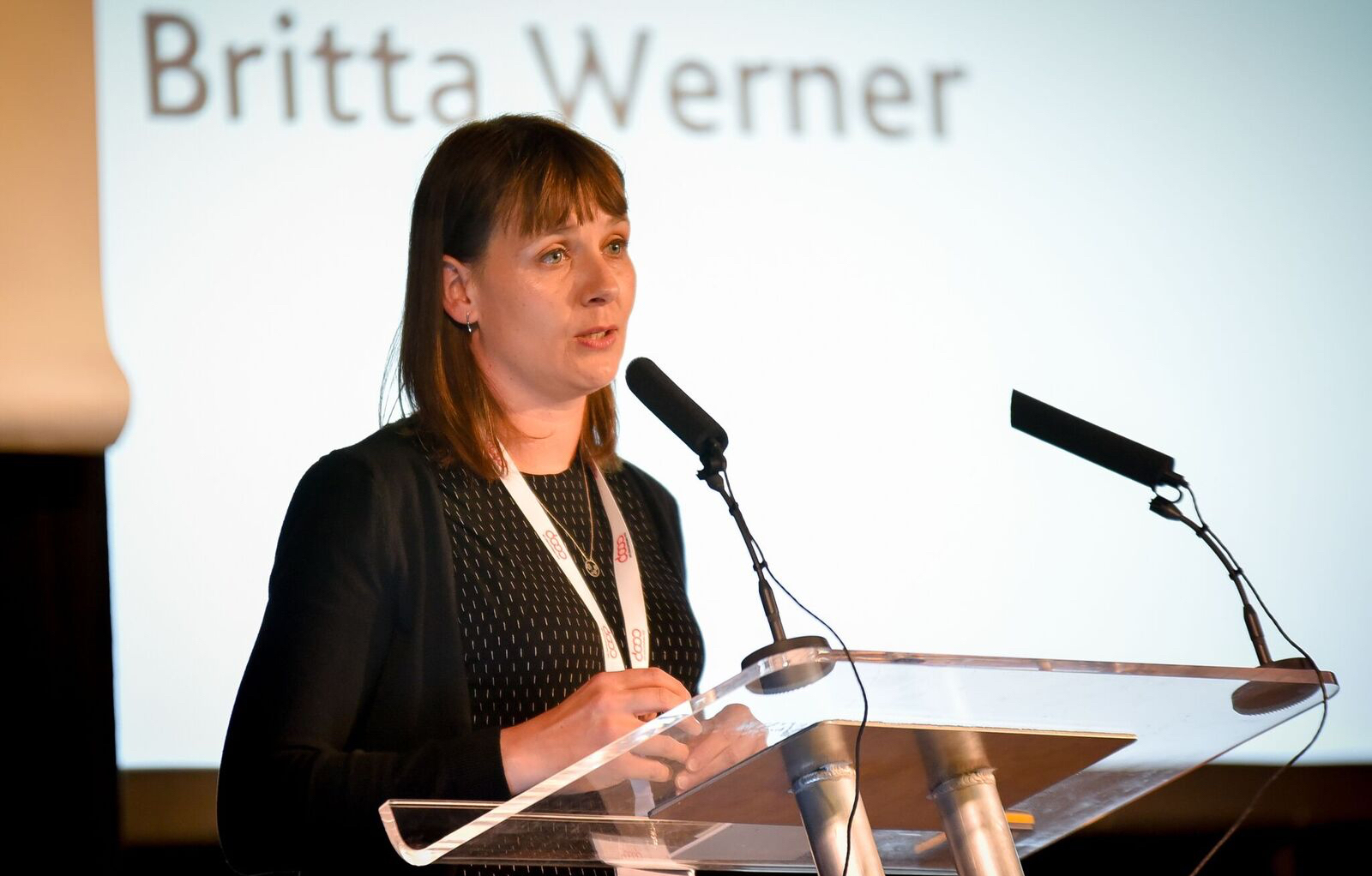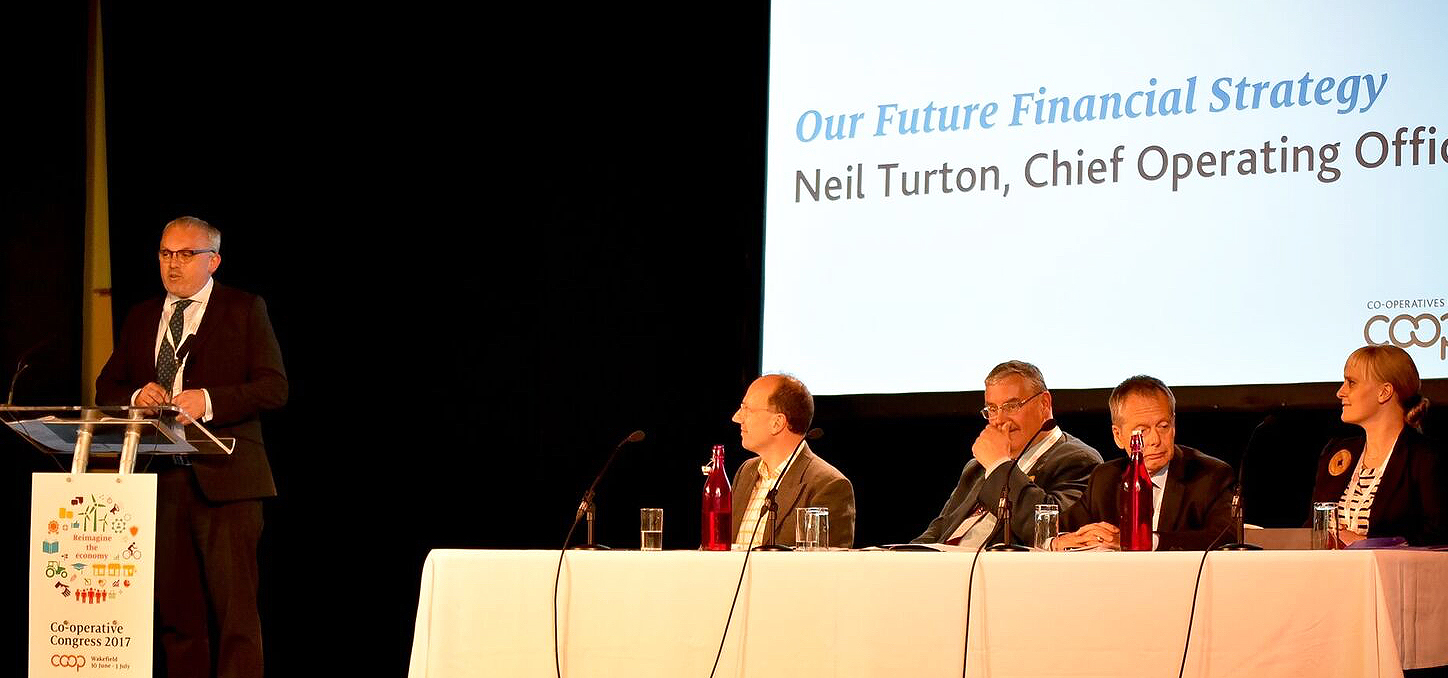Co-operatives UK held its AGM at Unity Hall, Wakefield, in June, where speakers stressed the importance of good communication and governance.
Steps being taken ranged from new ways to measure co-operative performance to plans to develop the apex body’s base – Holyoake House, in Manchester – as a bigger asset for the movement.
Governance co-ordinator Zena King said: “Just like all co-ops, members are really at the heart of what we do”, adding that Co-operatives UK wanted to be “an innovator” in engagement.
“Not all members want to be on a board, so we wanted to find new routes for members and our board to speak to one another,” she said.
Now, the organisation has set up network meetings, making sure co-op voices are heard through member groups, which will help it in its work – which ranges from growing the worker co-op sector to improving governance.
Some of that work is being done by the Co-operative Performance Committee (CPC) – which includes experts in finance, accountancy and co-op performance.
Doug Field, a member of the CPC, said: “We’re trying to make it easy for members of consumer co-ops to find out how their co-op performs … Not prices, shares, but member values, values and principles, governance.”
Co-ops should also “make it easy for members to understand their accounts,” he said.
Ross Hodgson, from the Co-operative Governance Expert Reference Panel, said good governance was key to the success of member-owned businesses.
He says a neglect of governance carries “multiple risks” while good governance creates a “strong and sustainable business”.
The panel is looking at ways to help co-ops to develop good governance, balanced with high performing governors, and is invited contributions from the movement.
Britta Werner, from the Worker Co-op Council, which sets out strategic goals for the sector and has representation on the board of Co-operatives UK, also addressed the AGM.

She said the council was involved in Co-operatives UK’s contribution to a government review of employment practices in the modern economy, stressing the role of co-ops in the gig economy.
The council also runs the Worker Co-op Weekend and has set up a Worker Co-operative Solidarity Fund. Over 5,000 members pay £1 a week to help support the setting up of other co-ops.
“The is an idea to reach out to freelancers as well,” she added, “Anyone who could benefit from setting up a co-op.”
Emma Laycock looked at the work of the Consumer Council, which brings directors together to discuss common interest and improve knowledge of the working practice of Co-operatives UK.
Before 2016, there were two consumer councils, covering different parts of the country, but in 2016 this was reviewed and now the first single merged council has met.
“We’re bringing in retail co-ops to the process,” she said, “They are coming together through meetings, store visits and so on.”
Looking at the Co-operative Development Body Forum, she said members were sharing ideas for good practice, come together and share best practice, network, share issues of common concern.
“We will continue this in 2018 and agree on a new membership package for CDB members of Co-operatives UK.”

Neil Turton, Co-operatives UK’s newly appointed chief operating officer, said: “It’s a really exciting time to be joining.”
He said the organisation needed to develop ways to serve the movement better, which would run alongside its new National Co-operative Development Strategy.
“We want to become less dependent on subscription income, without changing the DNA of the organisation,” he added. “We’ll offer a wider range, and greater impact, of advisory services so we’ll be the first port of call for people needing those services.”
Co-operatives UK also wants to develop Holyoake House as an asset, to improve the facilities it offers the movement, especially in the north west.
“Advisory and letting income is less than one pound in five at the moment,” he said. “We want to grow that, and make the organisation more member-facing and outward-facing, and do more to serve co-op movement in the future.”
Chris Newbury, a director at East of England Co-op, asked what efforts were being made to get the John Lewis Partnership, the country’s biggest co-op, to join Co-operatives UK.
Ed Mayo, secretary general of Co-operatives UK, said: “We have asked, we have a close working relationship. It’d partly down to history, they have been in the high street competing with businesses working under the Co-operative banner.”
He said John Lewis works with “our sister organisation” the Employee Ownership Association instead and is active in encouraging worker co-ops.
And he added that he would like to work with John Lewis in stepping out of the “parochial British context into a wider international context. It would be nice to see JL proud to be standing alongside organisations like Mondragon”.
Erskine Holmes asked if Co-operatives UK was paying any more attention to the movement in Northern Ireland.
Mr Mayo said: “The Brexit context means Northern Ireland and the cross-border relationships with co-ops in the Republic of Ireland is becoming a more pressing issue.”
He added: “Ireland has not been a member of the ICA. It has strong credit unions, strong agricultural co-ops, there is engagement at a European level but not more widely.”
He said it would be good to develop that.
Finally, the AGM heard there were moves to invest fund outside co-op movement “in an ethically screened way to use the funds, rather than having them sitting in the bank”.
Mr Mayo said this included “an experimental programme to use the funds through community share issues”.
The organisation is also looking at booster investments, such as Leeds Community Homes. “We were able to draw on funds through this charitable foundation to co-invest,” said Mr Mayo.
The process was closely overseen by the audit committee and “so far it seems to be positive”.

